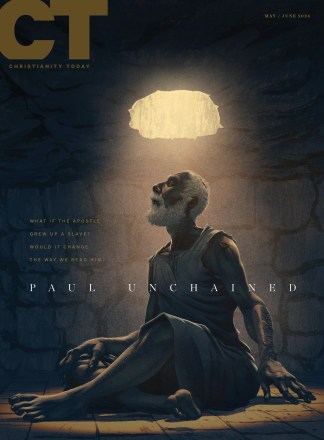In the Western world today, Peter Ackroyd is one of the finest writers of biography, history, and fiction. His most recent project turns attention to the field of religion, setting out to describe what he calls the “spirit and nature of English Christianity” as it has developed over the past 1,400 years.
The English Soul: Faith of a Nation offers an episodic and biographical account of books, individuals, and communities that have done most to shape this tradition. Consistent with Ackroyd’s gifts, the book crafts superb turns of phrase while approaching its subject with curiosity, generosity, and breadth.
But this book also makes some unexpected moves. The English soul, Ackroyd insists, requires a Christian explanation—for while Jews, Muslims, and adherents of other religions have “contributed” to the country’s religious tradition, their faith and practice have not “characterized” it. “Christianity,” he asserts, “has been the anchoring and defining doctrine of England.”
These are bold words, and contestable ones, not least when measured against England’s secularization over the past 50 years. In most parts of the country, Christian affiliation, even at its most nominal, is dropping fast.
The Church of England might still be established, and the new king might still be its supreme governor, but his episcopal appointments are approved by a Hindu prime minister in a capital city boasting a Muslim mayor and in a culture that treats these religious differences with little more than indifference.
These social changes reframe Ackroyd’s title into a question: Does England still have a Christian soul?
At minimum, Ackroyd’s book capably shows that England has a Christian past. Its chapters range across this terrain, beginning with the Venerable Bede, a seventh- and eighth-century monk known as the “father of English history.”
But it is not always clear what principle has governed the choice of topics and figures. There’s a gap of 700 years between chapter 1, on Bede, and chapter 2, on Julian of Norwich (and only a third of that chapter focuses on the famous mystic). Nearly half the book covers events in the 16th and 17th centuries, leaving just a few chapters apiece for the pre-Reformation church and the centuries leading up to the present day.
Neither are the chapter titles especially illuminating: Bede is discussed under “Religion as History,” the King James Version of the Bible under “Religion as Scripture,” and so on. The focus here is not on religion as practice. In fact, it’s not always clear whether the term religion is pointing to any fixed category at all.
Of course, the flexible meaning of religion presents a difficulty in a book meant to distill an English “soul.” And these references to an English soul are sometimes quite peculiar.
Ackroyd, for instance, describes Julian’s visions as “specific, almost humble” in detail, concluding that “the English soul is mediated through homely images.” This is a curious observation, as it seems to imply that Julian’s vision is ultimately turned in upon herself.
Ackroyd’s conception of “Englishness” is often just as hazy as his conception of religion. The Reformation, we’re told, demonstrated that “ambiguity and compromise were part of the English temper; doctrinal purity was not.” Queen Elizabeth’s proposals to end Protestant-Catholic conflict were “very English … practical rather than speculative,” involving “compromise, and toleration, as well as a fair amount of ambiguity.” The agendas of “compromise and conciliation” that animated the King James Version “might even act as a mirror of Englishness itself, and by extension of the English soul.” The Quaker movement had “an essentially English character,” in that “toleration … has always been the English path.” John and Charles Wesley preferred experience to doctrine and so offered an “outline of the English soul.” And so on.
These generalizations are not always accurate—John Wesley’s hostility toward his Calvinist rivals was certainly theologically informed. And they certainly cannot explain why the book devotes space both to evangelicals and to atheist stalwarts like Richard Dawkins.
This is where proper categorization is essential, because at least since the Reformation, as Ackroyd acknowledges, the English soul has been contested. With the rise of Protestant reform, the “fight for the English soul had become earnest.” One century later, Puritanism offered “an alternative English tradition,” which continues to compete for the English soul.
Ackroyd has particular trouble figuring out evangelicals. With their sometimes fierce commitment to biblical inerrancy and high view of God’s righteousness, it’s hard to imagine them fitting comfortably within the tolerant pragmatism of the book’s “English soul.”
Can evangelicals be English at all? They might be the only growing tradition within the established church today. Does that mean the English soul is dying?
It seems fitting, then, that The English Soul is a book without a conclusion. Its final chapter sketches the careers of revisionist thinkers like John A. T. Robinson, John Hick, and Don Cupitt, hinting that their movements away from “dogma or abstract principle” made them more faithful attendants upon the English soul.
But the lack of a conclusion seems revealing. It’s not merely that Ackroyd’s story of this tradition has yet to reach its finale. Perhaps, in his way of telling, it cannot.
Ackroyd’s book contains some unexpected blunders. It is not true, as he claims, that the 39 Articles of the Church of England rejected the doctrine of hell or that Puritans “doubted whether Christ … intended to create a Church at all.” Moravians did not regard sexual intercourse as a sacramental act. Charles Spurgeon was not the pastor of a “Reformed Baptist church” (a descriptor not used until the mid-20th century).
Blunders and larger hesitations notwithstanding, this survey of English Christian history remains a book by Peter Ackroyd, which means that it is provocative and sometimes baffling but also shrewd, carefully observed, and at its best, brilliant.
Crawford Gribben is a professor of history at Queen’s University Belfast. His books include The Rise and Fall of Christian Ireland.














